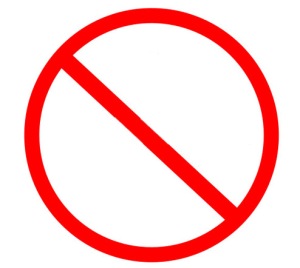The following short essay was my entry to the Frieze Magazine 2012 essay competition. It didn’t win but I rather like it (prejudiced as I am) so here it is.
Picasso – Encounters with Genius
(Picasso & Modern British Art, Tate Britain 2012)
I used to be anxious in museums, dogged by a guilty suspicion that my failure to find joy there was due to some congenital internal defect. Vapours of self-doubt clouded my vision. If I read more about art, purchased the audio guide or better-suppressed my impatience with shuffling tourists and hyperactive schoolchildren would I feel something? Once, I stopped and said hello to a little girl sitting on the floor of the Tate Modern, engrossed in Enid Blyton. “I like stories better than pictures,” she said.
As a rule, I do too – with exceptions for genius. “I may say that only three times in my life have I met a genius and each time a bell within me rang and I was not mistaken.”* The first time that bell chimed in me was on the dim-lit first floor of a municipal building in Mérida, Mexico. Sixty-seven of Picasso’s drawings were arrayed across two rooms, the pencil-lines of the sketches beckoning like fingers. Forgetting art exhibition etiquette, and my date, I stood nose to glass, trying to memorise the invisible something captured there. I went back three times in as many weeks.

The next chime sounded in Mallorca. After a late-night ferry crossing my friend and I stumbled into the train station, mute with exhaustion and simmering irritation. There was something insistently familiar about the ceramics exhibited in the main hall. Finally it clicked: “I didn’t know Picasso made plates.” We clutched each other’s arms, giggling like teenyboppers at masks with poked-out tongues and playful pitchers in the shape of fish with painted smiles and – I swear – a twinkle in their exaggerated eyes.
Picasso & Modern British Art arrived at the Tate Britain. I went warily, half expecting Picasso to sag beneath the weight of expectations. Sure enough, some of the paintings were heavy, clumsy, jaded. The bell was silent. Then my eyes shifted and my ears rang. Picasso’s work clamoured its existence, a barbaric yawp that drowned out the adjoining British artists. I don’t go into a museum expecting to feel sorry for artists, but seeing the canvases of Duncan Grant, Wyndham Lewis, Ben Nicholson, Graham Sutherland and Francis Bacon hanging all limp and seasick I thought: oh, you poor things. Nobody who isn’t a genius should have to share wall-space with Picasso. “I have met many important people, I have met several great people but I have only known three first class geniuses.”*

Each piece pulled me closer. Once or twice, I laughed aloud. The twined black and white fingers in The Three Dancers; the playful, tender sexual energy of his nudes; the puckishness of a domestic collage; beneath the surface of each an unmistakeable, ineluctable energy. What is it? Technique, innovation, and colour; yes. Audacity, humour, sensuality, also. Love, death, politics, and beauty, too. But not one of these things alone, nor any combination, was satisfactory explanation for my smiles or the swift prickle of tears. Enriched and refreshed, but none the wiser, I left and went for a long walk, listening to the bells.
When I described the exhibition to a friend he picked up on a word I kept repeating and asked: “What defines a genius?”
This was an unexpected challenge. The only answer I could think of was: “I don’t know, you just know.” We sipped beer and talked about something else. Then I realised there is a common bond of genius – all genius, whether in music, art, literature, or life. To be a genius is to have a unique perspective on the world and the ability to create something which transmits that vision. Picasso rings true because when you look at his work you see what he was seeing. You are looking through his eyes.
Now, I feel more comfortable in museums. A gifted artist can create something to please the eye but if there is no gong-strike in my soul I don’t worry. “In each case on sight within me something rang. In no one of the three cases have I been mistaken.”*
*Gertrude Stein from The Autobiography of Alice B. Toklas














